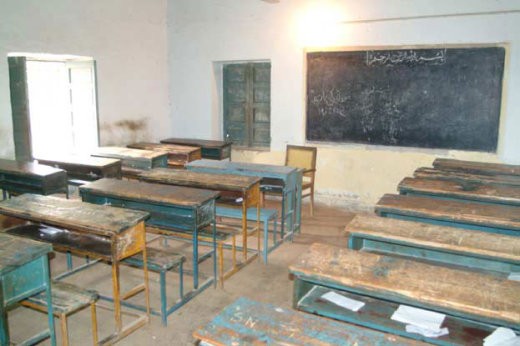
Terms like dignity, self-sufficiency, and ‘ghairat’ are thrown around lightly. Imran Khan has termed foreign aid as a ‘curse‘, and has said that Pakistan can be self sufficient if we will only stop taking aid from foreign countries and organisations like IMF. Simply talking about self sufficiency will not make it happen, though, and there is a crucial ingredient missing from these recipes: education.
A new report by UNESCO ranks Pakistan 180th in literacy, and states that illiteracy rate was 72 per cent for Pakistanis age 15 to 24 years compared to 46 per cent for Pakistanis age 45 to 54 years. This means the Pakistanis who we will increasingly rely to build and operate the businesses and organisations necessary to make Pakistan self sufficient are mostly illiterate. It also means that rather than getting better, the problem is only getting worse. We are failing to educate our own children.
• Nearly half of Pakistan’s population cannot read or write. The ratio for females is abysmally lower, especially for certain parts of Pakistan such as in rural Sindh and Balochistan, where the ratio for female literacy is 23pc and 16pc respectively.
There are only 13 countries in the world with a lower adult literacy rate than Pakistan, according to data compiled by the United Nations. These countries include Benin, Burkina Faso, Chad, Ethiopia, Guinea-Bissau, Sierra Leone and Mali — collectively some of the poorest countries in the world.
• Depending on source used, the number of children out of school in Pakistan amounts to anywhere from seven million to nearly 25 million. The average number of years of schooling completed is 4.9 years in the case of Pakistan, slightly ahead of Angola and Bangladesh.
• In terms of public spending, the combined budget allocation for education by all tiers of government in Pakistan is the equivalent of around 2pc of GDP. It has stagnated around this level for the past several years, and remains so despite the passage of Article 25-A of the Constitution that guarantees the right to free education for every child in Pakistan.
• At this level, Pakistan ranks 177th globally in terms of public spending on Education, according to the Human Development Report 2013 issued by UNDP.
• Only seven developing countries in the world have lower public spending on education. These include Bangladesh, Central African Republic, Dominican Republic, Eritrea, Lebanon, Sri Lanka(!) and Zambia.
While there are some organisations such as Alif Ailaan trying to address this crisis, there is much more that needs to be done. Before we will ever be able to stand on our own feet, we must first ask ourselves what kind of dignity we gain if we can block the supply routes of the most powerful military in the world, but we cannot read.
![]()





